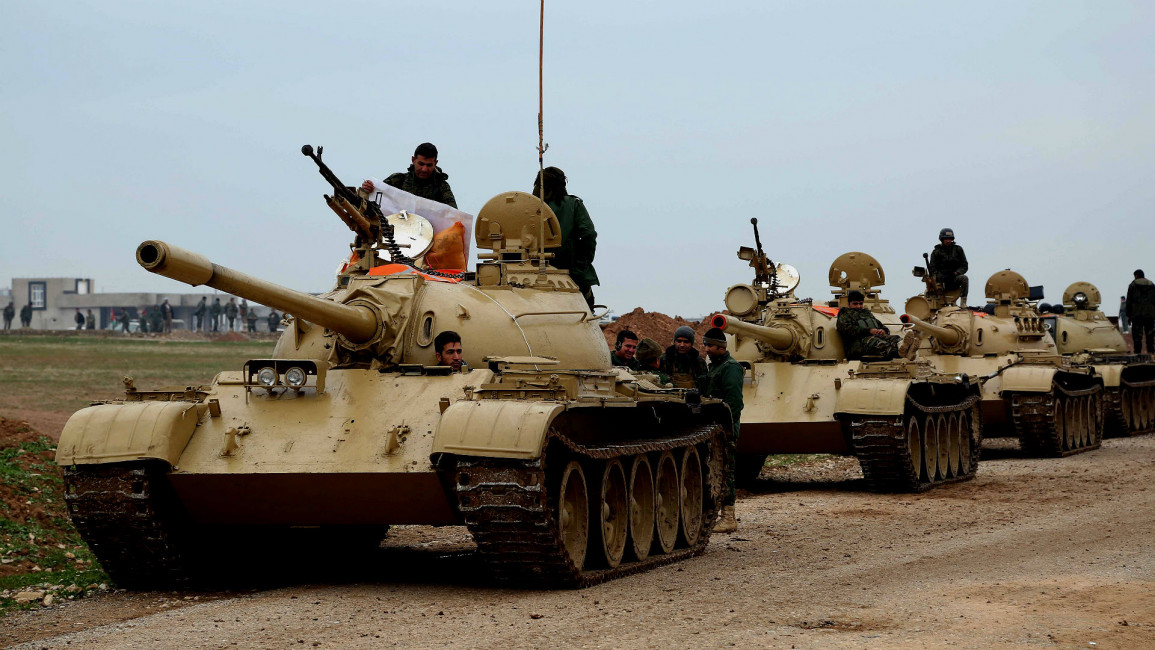Iraqi Kurdish forces 'break' Mount Sinjar siege
Iraqi Kurdish forces backed by US-led air strikes broke Islamic State group's weeks-old siege of Iraq's Mount Sinjar on Thursday, a top Iraqi Kurdistan security official said.
Peshmerga forces have reached Mount Sinjar, the siege on the mountain has been lifted," Masrour Barzani, the chancellor of the Kurdistan Regional Security Council, told reporters from an operations centre near the border with Syria.
A statement from Barzani's office said the operation launched by the peshmerga on Wednesday morning had been one of the most successful so far against the Islamic State (IS) group. It said the siege was broken at 1530 GMT and was the conclusion of an operation involving 8,000 peshmerga forces.
"This operation represents the single biggest military offensive against IS and the most successful," the statement said. It also said that, as a result, fighters had fled en masse towards strongholds such as Tall Afar and Mosul, Iraq's second city and the main IS hub in northern Iraq.
Barzani told reporters the peshmerga push had cut key supply lines used by IS and reclaimed a total of 700 square kilometres (270 square miles) during the past two days.
Fear of genocide
A devastating IS attack on the Yazidi minority's Sinjar heartland in August displaced tens of thousands of people and was one of the reasons put forward by US President Barack Obama for launching strikes four months ago.
Amid fears of a genocide against the small Kurdish-speaking minority, tens of thousands of Yazidis fled to the mountain and remained trapped there in the searing summer heat with no supplies.
Kurdish fighters, mostly Syrian, broke that first siege but remaining anti-IS forces were subsequently unable to hold positions in the plains and retreated back to the mountain in late September.
The peshmerga commander for the area said troops had reached the mountain and secured a road that would enable people to leave, effectively breaking the siege.
"Tomorrow most of the people will come down from the mountain," Mohamed Kojar told AFP by phone, explaining the offensive had secured a corridor northeast of the mountain.
IS leaders ‘killed’
Also on Thursday, American officials announced that two senior Islamic State group leaders were killed in U.S. and coalition airstrikes in northern Iraq over the last week, as Defense Secretary Chuck Hagel approved new orders for several hundred troops to deploy to Iraq to train Iraqi forces.
According to one of the U.S. officials, airstrikes killed a key deputy of Abu Bakr al-Baghdadi, the leader of IS, and one of al-Baghdadi's military chiefs. A third militant, described as a mid-level leader, was also killed.
According to one official, the names of those killed were Haji Mutazz, al-Baghdadi's deputy; Abd al (or Abdul) Basit, the military chief; and Radwin Talib.
Mosul battle looms
Meanwhile, the White House announced that President Barack Obama spoke with Iraq Prime Minister Haider al-Abadi, commending him for his efforts to create an inclusive government and build a united Iraqi front to combat the militants. Obama also reiterated the U.S. commitment to train and assist the Iraqi military, provide weapons and equipment and continue to launch airstrikes against the militants.
The top U.S. commander for the mission in Iraq and Syria said Thursday the next wave of American troops will begin moving into Iraq in a couple of weeks, and cautioned that it will take at least three years to build the capabilities of the Iraqi military.
There are currently about 1,700 U.S. troops in Iraq, and President Barack Obama has authorized up to 3,000.
More than 1,000 U.S. troops are expected to be deployed in the coming weeks to increase the effort to advise and assist Iraq units at the higher headquarters levels and also to conduct training at several sites around the country.
Army Lt. Gen. James Terry said the challenge is to get Iraqi units trained and back into the fight so they can plan operations to regain contested areas such as Mosul.
He said that while there has been progress in halting the militants' charge across Iraq, "I think what we must do, especially inside of Iraq, is continue to build those (Iraqi) capabilities. I think you're at least talking a minimum of three years."
The Iraqi army wants to launch a counteroffensive to retake Mosul, the largest city in northern Iraq, and the U.S. probably would help. While there have been some concerns that Iraq's military may not be ready yet for such an ambitious operation, Hagel said last week that the U.S. is working with senior Iraqi leaders on preparations.



